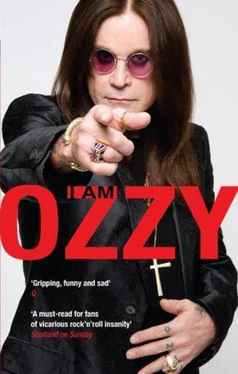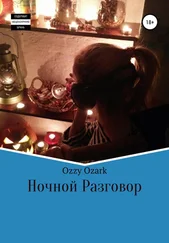Gus was one of those guys who made a huge contribution to British music, even though he wasn’t a household name. And although we might not have fully appreciated it at the time, we were incredibly lucky to have him help us so early on in our career.
We played a few clubs while we were down in London. At one of those gigs the DJ put on a record before we went on stage, and it just blew me away. Something about the singer’s voice sounded familiar. Then it came to me: it was Robert Plant. So I went over to the DJ and said, ‘Is that the New Yardbirds’ record you’re playing?’
‘No, it’s a new band called Led Zeppelin.’
‘Really?’
‘Yeah, man. I swear.’
We played our gig, but I couldn’t get the record out of my mind, so afterwards I went back to the DJ and asked him, ‘Are you sure it’s not the New Yardbirds? I know that singer, and he ain’t in a band called Led Zeppelin. Does it say who the band members are on the sleeve?’
He read out the names: ‘Jimmy Page, John Bonham, John Paul Jones, Robert Plant.’
I couldn’t believe it: the New Yardbirds must have changed their name to Led Zeppelin…
and they’d made the best record I’d heard in years. In the van on the way home, I remember saying to Tony, ‘Did you hear how heavy that Led Zeppelin album sounded?’
Without missing a beat, he replied, ‘We’ll be heavier.’
By the end of 1969 we were desperate for anything that could take us to the next level.
But we were still on the same C-list gig circuit, night after night. Our last gig of the year was on December 24 in Cumberland—we were still getting a lot of work up there—at Wigton Market Hall. As it happened, there was a women’s mental hospital right next door to the venue, and every year the doctors would let the patients out for a Christmas dance. We didn’t know anything about that, but even if we had, I doubt any of us would have guessed that the funny farm would choose a Black Sabbath gig for its annual outing. But it did. So we’re halfway through ‘N.I.B.’ when all these loony chicks come piling in through the door at the back of the hall, and by the end of the song a riot has broken out. You should have seen it: these chicks were punching the guys, and then the guys’ girlfriends were chinning the mental chicks right back. It was pandemonium. By the time the police showed up there were loads of women lying around on the floor with black eyes and bloody noses and split lips.
Then they started to sing ‘Give Peace a Chance’.
Meanwhile, we were just standing there on stage, amps buzzing. I looked at Tony, and Tony looked at me.
‘This is fucking nuts,’ I mouthed to him.
He just shrugged, turned up his amp, and started to play ‘We Wish You a Merry Christmas’.
In January 1970, it finally happened.
We got a record deal.
For a few months, Jim Simpson had been shopping us around by inviting all these big-wigs from London to come to our gigs. But no one was interested. Then one night a guy from Philips drove up to Birmingham to see us play at Henry’s Blues House and decided to take a bet on us. The name Black Sabbath made a big difference, I think. At the time there was an occult author called Dennis Wheatley whose books were all over the bestseller lists, Hammer Horror films were doing massive business at the cinemas, and the Manson murders were all over the telly, so anything with a ‘dark’ edge was in big demand. Don’t get me wrong, I’m sure we could’ve done it on the strength of the music alone. But sometimes, when it comes to getting a deal, all these little things have to come together at the right time.
You need a bit of luck, basically.
Another thing that helped was the fact that Philips was setting up a new ‘underground’ label called Vertigo when we were looking for a deal. We were a perfect fit. But the funny thing was that Vertigo wasn’t even up and running in time for our first single, ‘Evil Woman’, so it was originally released on another Philips label, Fontana, before being reissued on Vertigo a few weeks later.
Not that it made any fucking difference: the song went down like a concrete turd both times. But we didn’t care,
because the BBC played it on Radio 1.
Once.
At six o’clock in the morning.
I was so nervous, I got up at five and drank about eight cups of tea. ‘They won’t play it,’ I kept telling myself, ‘They won’t play it…’
But then:
BLAM… BLAM…
Dow-doww…
BLAM…
Dow-dow-d-d-dow, dooooow…
D-d-d-d-d-d-d-d-d
DUH-DA!
Do-doo-do
DUH-DA!
Do-doo-do…
It’s impossible to describe what it feels like to hear yourself on Radio 1 for the first time. It was magic, squared. I ran around the house screaming, ‘I’m on the radio! I’m on the fucking radio!’ until my mum stomped downstairs in her nightie and told me to shut up. ‘Evil woman,’ I sang to her, at full volume, ‘Don’t you play your games with me!’ Then I was off, out of the door, singing my head off all the way down Lodge Road.
But if being played on Radio 1 was good, it was nothing compared with the advance we got from Philips: £105 each!
I’d never even had ten quid to call my own before, never mind a hundred. It would have taken me a whole year of tuning car horns at the Lucas factory to earn that kind of dough. I thought I was Jack the Lad that week. The first thing I bought was a bottle of Brut aftershave to make myself smell better. Then I got a new pair of shoes, ’cos I’d destroyed my old ones in Denmark. The rest I gave to my mum to pay the bills. But then I kept scrounging it back off her, so I could go down the pub and celebrate.
Then it was back to work.
As far as I can remember, we didn’t have any demos to speak of, and there was no official talk about making an album. Jim just told us one day that we’d been booked for a week of gigs in Zurich, and that on our way down there, we should stop off at Regent Sound studios in Soho and record some tracks with a producer called Rodger Bain and his engineer, Tom Allom. So that’s what we did. Like before, we just set up our gear and played what amounted to a live set without the audience. Once we’d finished, we spent a couple of hours double-tracking some of the guitar and the vocals, and that was that. Done. We were in the pub in time for last orders. It can’t have taken any longer than twelve hours in total.
That’s how albums should be made, in my opinion. I don’t give a fuck if you’re making the next Bridge Over Troubled Water—taking five or ten or fifteen years to make an album, like Guns N’ Roses did, is just fucking ridiculous, end of story. By that time, your career’s died, been resurrected, and then died again.
In our case, mind you, we didn’t have the luxury of taking our time. It wasn’t an option. So we just went in there and did it. And then the next day we set off for Zurich in the Transit to do a residency at a joint called the Hirschen Club. We hadn’t even heard Rodger and Tom’s final mix when we left Soho, never mind seen the album cover. That’s how the music business was run in those days. As a band, you had less say in what was going on than the guy who cleaned out the shitter in the record company’s executive suite. I remember it being a long, long way to Switzerland in the back of a Transit van. To kill time, we smoked dope. Shitloads of it. When we finally got to Zurich, we were so fucking hungry we found one of those posh Swiss caffs and held a competition to see who could eat the most banana splits in the shortest time. I managed to get twenty-five of the fuckers down my throat before the owner chucked us out. My whole face was covered in cream by the end of it. I could have had a couple more of them, too.
Читать дальше


